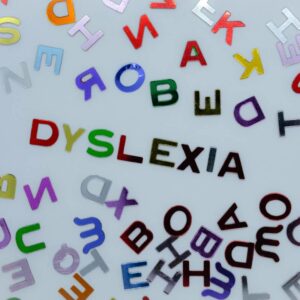If parents are both involved and supportive, there can only be two reasons as to why a child is struggling in school.
Environmental variables can affect a child’s school performance. Your child may have experienced a bad teacher, frequent school changes, recurrent absences as a result of extended illness, and even dealt with a difficult personal experience (i.e., moving, death of a loved one, etc.). In these situations, generic tutoring centers such as Sylvan, Huntington, or your neighbor who used to be a 2nd grade teacher, will do a fine job of catching them up.
However, there are other groups of children that are frustrated as a result of struggling to do well in school. These children make an effort, attend school regularly, do their homework, and have not responded to parents providing extra help or generic tutoring. As simple as it sounds, these kids merely have brain systems that are not ideally designed for the task demands of school.
It is important to understand that these children are not lazy, unintelligent, or oppositional. In many situations, they may appear to be anxious. While anxiety is not the cause of school problems; school problems are, in fact, the cause of anxiety. These children are indeed intelligent; they simply have brains that do not learn in the same capacity as most other brains do. They are not broken brains; they are different than those which possess the cognitive tools necessary to manage school demands fluidly. Before these children can “catch up”, one needs to know which systems (neuro-networks/cognitive abilities) are impeding attainment of acquired knowledge (reading, writing, and math skills).
Neuroscience can be very complicated. However, it is really not as complex as it seems, with respect to a generic understanding of the necessary cognitive hardware to manage school demands. These cognitive systems take in sensory information (things happening around us) through the visual, auditory and somatosensory systems. Initially, the information being brought in has to be discretely identified to be available for higher-level processing. In some children, the breakdowns occur at this premature stage of processing.
As the information moves upward and forward in the brain, more complex processing occurs. The information (thoughts at this point) becomes integrated with old knowledge and is analyzed with assistance from other sensory systems. It is then interpreted and positioned to be used (new learning) or discarded (forgotten). What is important is saved for future reference and provides an expanded base of information (long-term memory) for more information to be added to as it is acquired (as one learns more).
We have made some subtle modifications to our conceptual model. The model presented below captures all of the cognitive components required for a child to be successful in school.
Beyond academic success these neuro-networks (cognitive abilities), and the ability of these networks to function efficiently (both alone and with other cognitive systems), are facilitators or inhibitors of being emotionally stable, paying attention, and developing social skills. The construction and integrity of the brain systems drives an individual’s ability to manage the demands placed on them in their home, school, and social environments. When the efficiency of the brain’s management of cognitive demands intrinsic to each learning situation is inconsistent, a “train wreck” is inevitable.






